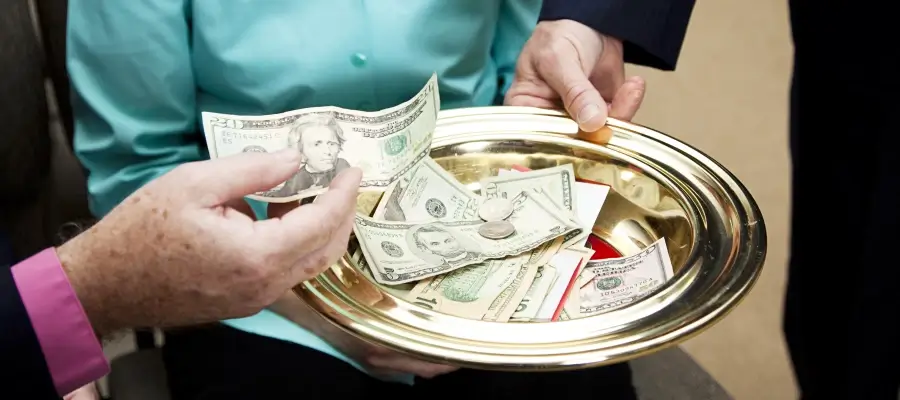

Reverse Mortgages: A New Way to Tithe
Seniors age 62+ that have more than 50% equity in their home, might be able to tithe using a reverse mortgage. Reverse mortgages are a type of loan that allows homeowners to borrow money against the equity in their homes. The money that is borrowed can be used for any purpose, including tithing.
Many religions are called to tithing, which is the giving of ten percent of one’s annual earnings when able. This practice has stood as the backbone of the world’s charitable efforts, helping to directly support the sick, poor, and elderly in their needs.
Tithing is a common practice in many religions around the world, including:
- Christianity: Tithing is a central practice in Christianity. It is mentioned in the Bible several times, including in the book of Malachi, where God says, "Bring the whole tithe into the storehouse, that there may be food in my house. Test me in this," says the Lord Almighty, "and see if I will not open the floodgates of heaven and pour out so much blessing that you will not have room enough for it." (Malachi 3:10)
- Judaism: Tithing is also a central practice in Judaism. It is mentioned in the Torah, the first five books of the Hebrew Bible. The Torah says that Jews should tithe 10% of their crops and livestock to the Levites, a tribe of priests who served in the Temple in Jerusalem.
- Islam: Tithing is not as common in Islam as it is in Christianity and Judaism, but it is still practiced by some Muslims. The Quran, the holy book of Islam, does not explicitly mention tithing, but it does say that Muslims should give to charity.
- Hinduism: Tithing is not a common practice in Hinduism, but it is sometimes practiced by some Hindus. The Bhagavad Gita, a sacred text of Hinduism, says that people should give to charity, but it does not specify how much they should give.
- Buddhism: Tithing is not a common practice in Buddhism, but it is sometimes practiced by some Buddhists. The Buddha taught that people should give to charity, but he did not specify how much they should give.
The amount of money that people tithe varies from religion to religion and from person to person. In Christianity, for example, some people tithe 10% of their income, while others tithe less or more. There is no right or wrong amount to tithe, ultimately it is up to the individual to decide how much they want to give.
The money that people tithe is used to support the religious organization that they tithe to. In Christianity, for example, tithe money is often used to pay for the salaries of ministers, to maintain church buildings, to fund missionary work, and to help support the sick, poor, and elderly in their needs.
In Judaism, tithe money is often used to support the poor and needy.
Tithing is a voluntary act, but it is often seen to show one's commitment to a religious organization. It is also seen as a way to help others.
Reverse mortgages are a type of loan that allows homeowners 62 years of age and older to borrow money against the equity in their homes. The loan is repaid when the borrower dies, sells the home, or moves out permanently.
The monthly payments on a reverse mortgage are typically tax-free and can be used for any purpose, including tithing.
Ultimately, the decision of whether or not to use a reverse mortgage to tithe is a personal one. You should pray for guidance on this decision.
If you are considering using a reverse mortgage to tithe, it is important to talk to a financial advisor to make sure that it is the right decision for you.
“Keep in mind the words of the Lord Jesus who himself said,
‘It is more blessed to give than to receive'” (Acts. 20:35).
